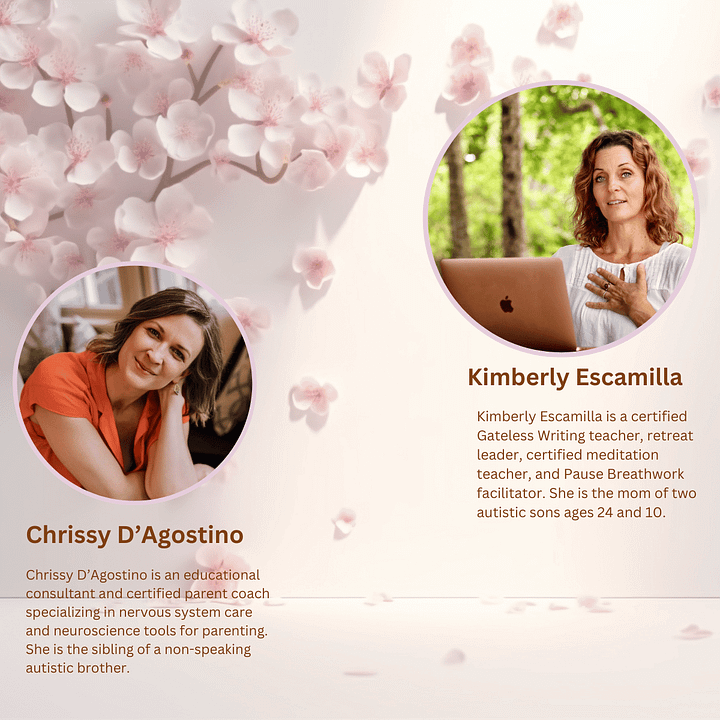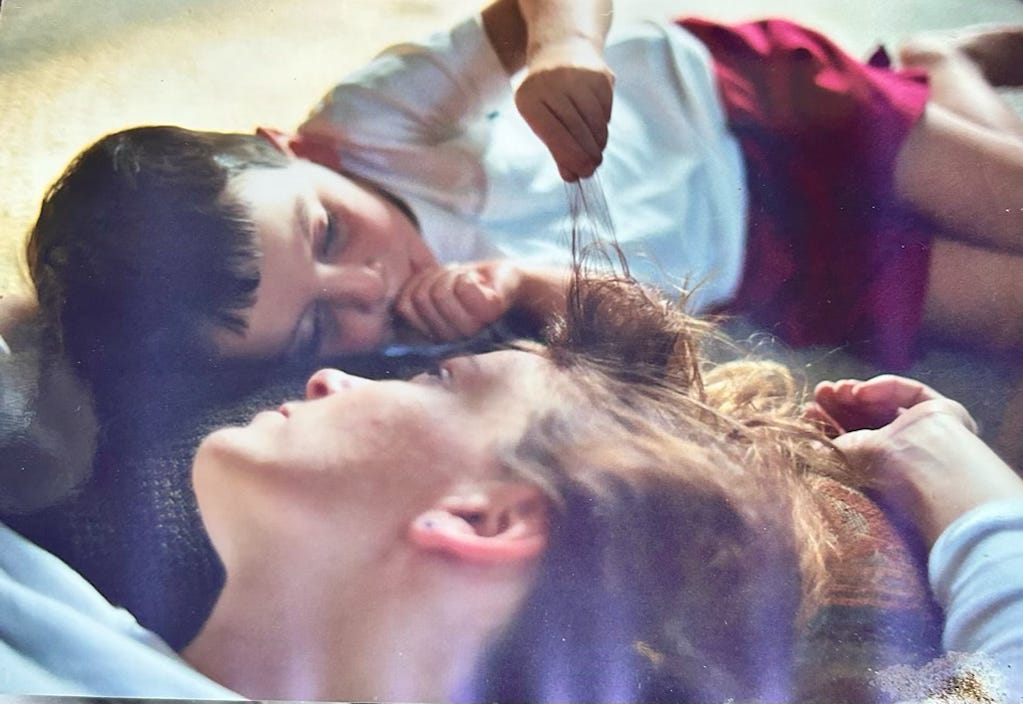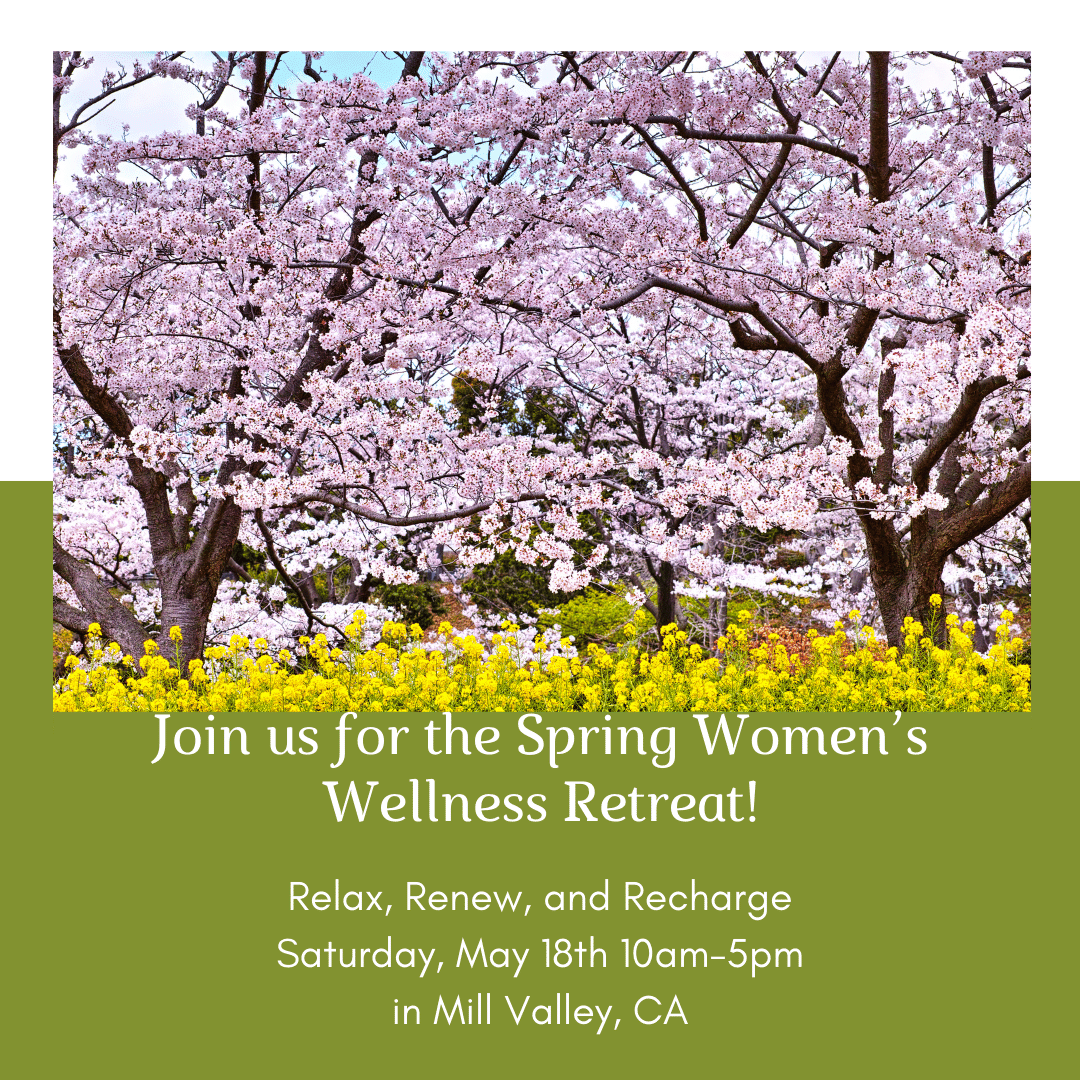“Thanks for watching Harrison, Theresa. It was nice to have a break.”
Theresa smiled but seemed preoccupied as she handed me Harrison’s diaper bag.
“Kim, I wanted to tell you something. When you were gone, I noticed that Harrison wasn’t responding to my voice or making eye-contact. He seems off in some way.”
I quickly sized him up as he snoozed peacefully in the car seat carrier.
“Really? That’s weird. He just got over being sick and was on antibiotics. I wonder what’s going on. Thanks for letting me know. I’ll ask his daycare worker, Mary.”
The next Monday at pick-up, I asked Mary if she noticed anything.
Her eyes welled up.
“Yes, I was wondering if you noticed or if I was just making things up in my mind. Something does seem wrong. I have been trying to give him more attention than normal, even with three other kiddos, but I haven’t seen any improvement. He seems lost in his own thoughts. And he’s not babbling much or talking.”
“Do your other 18 month olds talk?”
I was a first-time mom and didn’t have any real reference for “typical."
“Yes, watch.”
Mary walked over to Jayden, another boy in her daycare around Harrison’s age.
”Jayden, do you want a cookie and water? Cookie and water?”
“Coo-kie, wa-ter” Jayden repeated with a smile, looking right at Mary’s face as she held up a ziplock bag of vanilla wafers and a blue sippy cup.
When I broached the subject with Ed, Harrison’s father, he dismissed their concerns. “Dr. Osofsky would have said something at his 18 month check up if there was a problem.”
“I guess. but if our friends and his daycare provider are saying there’s a problem, maybe we should look into it. We could ask our neighbor Chris. Didn’t he say he was the principal at Stanford’s Children’s Health Council.”
“Okay, if it makes you feel better.”
Chris agreed and snuck us in on a cancellation three months earlier than the normal wait time.
For parents of neurodivergent kids, the denial phase may show up in yourself or those closest to you. Denial might look like avoidance and silence, all while suppressing fear and anger. But remember, at least for a while, denial is normal because we often need to adapt to the immediate demands of our lives rather than be paralyzed by triggering emotions. Coming to terms with a diagnosis (or any major traumatic news) takes time. If you are coming out of denial, try not to shame yourself. Be gentle.
If those around you are denying your kid’s diagnosis, this is a form of gaslighting--and it can feel super triggering. Grandma and your best friend who has a child the same age might not think there’s a problem. They say you are over-reacting. Common phrases I heard were, “Boys are slower.” “My kid also has tantrums, all kids do.” Or, my least favorite, “He just needs more discipline.”
The first few months post diagnosis, I read every book I could find, which wasn’t a lot at first. (It was pre-Amazon, and Barnes & Noble only had two in stock). With the books I read, I experienced cognitive dissonance. I did not fully believe the diagnosis for at least a month. I would look for clues or errors in doctors’ evaluations of him. After his diagnosis, we talked to Dr. Osofsky, but he apologized and said had never had a patient with autism—even though he had been practicing for nine years. The other aspect of the diagnosis I denied was the emotional, mental, and physical toll caring for Harrison was having on me. But when I would share, many responded by trying to downplay the situation: “Don’t stress so much. He’s fine, all kids are different; it’s no big deal, he’ll catch up.”
Diagnoses and Relationships
If you have a partner, denial of a diagnosis can be a huge influence on the relationship. If you and your partner are of the same general view and want to take the same approach for caring for your child, then it might bring you very close together, where you feel deeply understood and supported.
However, if you don’t have a partner (Harrison’s dad Ed and I split up just before Harrison’s diagnosis, not because of it), or if you and your partner are in denial about the diagnosis, then the weight of it can be too much for even the most seasoned relationships.
Ed and I joke that splitting up before Harrison was diagnosed was a godsend in that we may have stayed together out of guilt and in the process would have fought constantly in earshot of Harrison. Despite our inability to live under the same roof, we have always had a mostly amicable co-parenting relationship, though we disagree often. By having two homes, Harrison got real breaks from each of us before we hit a breaking point; and the time away gave us the room to work full time and care for ourselves in distinct and equitable ways. If we had been together, the power plays for whose work or emotional needs were more important would have been incessant.
In my personal experience and my observation of many families, one parent tends to take on the lionshare of the emotional and sometimes physical aspects of parenting an autistic kiddo--and the resentments and repercussions of not getting their personal needs met first, are detrimental. There are exceptions--and celebrate if you and your partner are on the same page. I’ve met families where the dad works a 50+ hours a week and 100 percent supports the family, but the mom quit her professional job or dropped out of her graduate program for full time care of their child. This family had a great house, pool, etc. but anyone (including their child) could feel the resentment and tension between them. In our family, I did most of Harrison’s care until he was six years old--though I had breaks. Then, it was closer to 60/40 as we split time evenly, but I did all of the insurance, regional center, school meetings, therapies, and medical care. A little over a year ago, 24 years into parenting, Ed started doing more like 95 percent since I’m living in Costa Rica. Whew, it was hard to release that control.
Find Your People
Whatever your child’s diagnosis, it is vital that you have a community that radically accepts you and to have a space where their children have similar challenges. For example, if your kiddo is non speaking and your only other friend with an autistic child is being 100 percent mainstreamed, you are likely not going to feel fully understood in navigating your emotional, mental, and physical challenges. Find your people. Comparisons are a slippery slope when you are raw and feeling vulnerable. It took me almost a decade where I could fully hold space for a friend whose biggest concern was her child’s low grade in art or a cavity. You need people who are in your own world--and that world changes. (In another post, I’ll talk more about why it is also key to have friends who don’t have kids at all.)
Currently, I’m in the world of planning long term care for one child and dealing with homeschooling and violent and destructive episodes for the other. Social media has been helpful in connecting me with specialists and families, but I also have a family friends here in Costa Rica, who deal with these challenges too. And, it feels so good to have my people close by. When you are with parents who get it and don’t question, pity or underplay your experience, there’s a level of ease.
They understand if you need to cancel.
Their nervous systems aren’t affected by your kids’ movements, vocalizations, or actions.
They are thoughtful about details and are low drama.
They aren’t offended if a long stretch of time goes by without calling/connecting.
They can anticipate and accommodate how a gathering will need to be planned.
You are doing a great job, and the challenges are real. Connect with those who believe you and leave you feeling lighter after time together.
Next week— “Anger and Over-identifying as a Victim”
Free Workshop for Parents of Neurodiverse Kids
Parents of neurodiverse kids have an added layer of complexity while trying to support their children and themselves. Join me and my friend and colleague Chrissy D’Agostino for this neuroscience based workshop that lays a foundation for connection and offers a few strategies that can help you navigate those super challenging moments. I’m also leading a mini-breathwork session during our time together. Monday, February 5th 12-1pm EST Sign up here


Monthly Community Online Breathwork Session
Sunday, February 4th from 6:00pm PST/ 9:00 pm EST
Join us for an hour to reset for your week ahead. This month’s theme is self-acceptance. Many of us are burned out —especially trying to work on the personal as the global is so chaotic, so the focus here is to cultivate some joy and openness for wherever we are. From the comfort of your own home, you can use this calming practice and curated playlist to find some calm and give your inner critic the night off. The session is open to all regardless of payment, donations welcomed (estimated value $35).
Women’s Spring Renewal Retreat
Back by popular demand, but with a few twists. A day long retreat for the ladies. Yoga, breathwork, Gateless writing, energy work, delicious food, and loving community— all in a beautiful home in Mill Valley, CA. Saturday, May 18th 10am to 5pm. Limited space. Reserve your spot today.
Coming Up:
Tranquilo Retreat in Costa Rica for Parents of Neurodiverse Kids July 22-26, 2024
Women’s Nature Wellness Weekend—Glamping in Mendocino, May 31-June 2, 2024
If you are interested in working 1:1 for breathwork or on a writing project or both 😊, please send me a note. I have two spots open for working privately.






